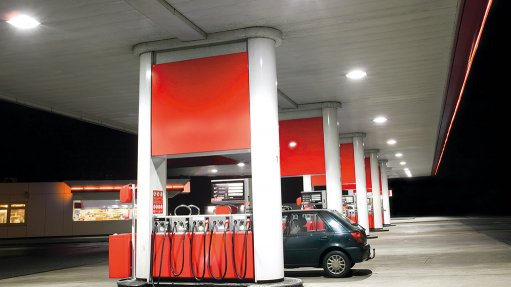
FUEL RETAIL Africa’s fuel demand is forecast to increase by 50% in the next ten years, driven by economic developments happening on the continent
The profitability of the fuel retail industry increased steadily before and after the global recession, while prospects remain robust for the industry throughout Africa, says Barclays Africa local division Absa fuel industry business development manager James Noble.
The demand for fuel service stations was linked to local economic development, and the bank foresees mostly diesel demand driving commercial growth, in keeping with the current patterns of consumption.
However, ancillary services and businesses around stations, which also help to diversify the income streams of the stations, are a significant driver in the increasing demand for fuel retail stations.
The industry provides job creation opportunities, provided fuel demand is robust, and stations often serve as anchors for nonfuel services, including food, cellular and renewable power recharging services, as well as marketplaces for communities, says Noble.
“The fuel retail industry remains profitable with significant scope for entrepreneurs and people who want to own their own business to get involved,” he notes.
Absa has significant experience in providing banking-related services for fuel retailers in Southern Africa, and can provide a comprehensive portfolio of banking services, including cash management, merchant services and industry-specific insurance to support the growth of existing and new fuel stations within parent company Barclays Africa’s footprint.
It also has access to a large proportion of the industry’s financial records, given that it provides banking and financial services for the majority of the fuel retailers in South Africa, and has analysed their records to develop its fuel retail services portfolio and bundled offerings, notes Noble.
“Fuel retailing remains the primary income of fuel stations. The additional income lines [from other services] broaden the skills required by the business owner, particularly retail skills.”
Many fuel retail owners outsource these additional income lines to partners who rent the space. However, the centrality of fuel retail stations for broader services remains significant and a potential growth opportunity.
“Broader possibilities also exist, depending on the needs of surrounding communities and technologies that they might use.”
Absa and Barclays Africa are familiar with typical financial pitfalls in the fuel retail industry and can support station owners operating in the various markets. This support includes various financial instruments, insurance and bundled service offerings to cover all the financial challenges in the industry or a particular market.